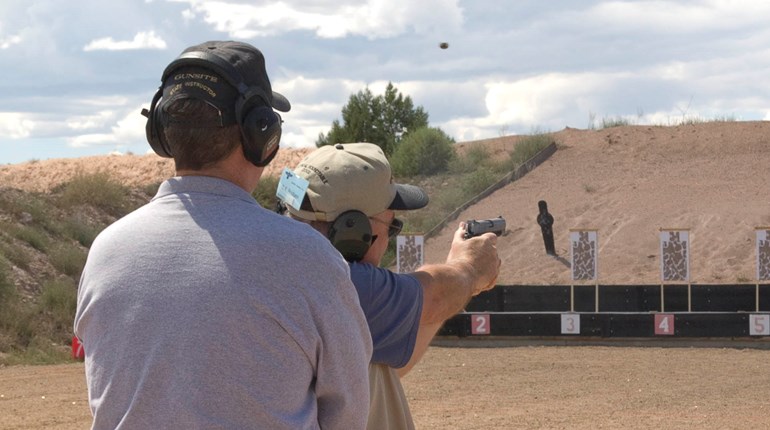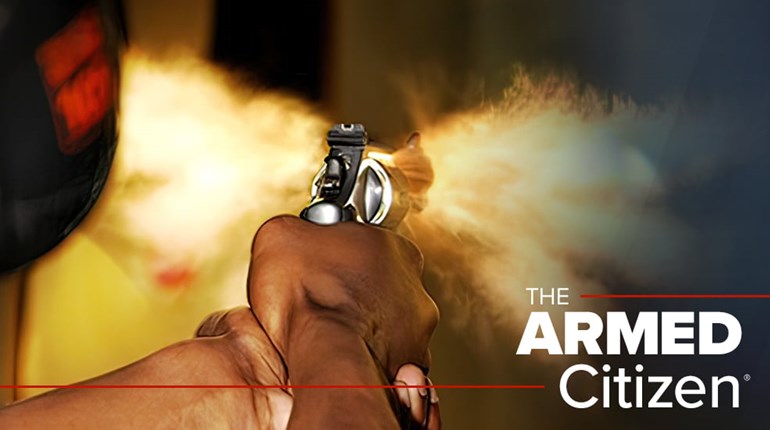
Editorials and public appeals from the medical community are the latest tools in an attempt to parlay a national tragedy into a political agenda.
“Gun Carnage Is a Public Health Crisis,” declares an Oct. 13 editorial from The New York Times, accusing lawmakers of using mental health or the legality of slide fire stocks as diversionary tactics and asserting, “The problem is the weapon, not the latest accessory.” The Times also repeats accusations of the government stifling research, and the NRA “lethally marketing” the “military style” firearms to civilians. Fortune magazine similarly claimed guns were a public health crisis, citing the Oct. 1 shooting in Las Vegas as proof.
Of course, the so-called “mainstream” media is only too happy to reframe the issue as a “public health crisis,” as the door would then be opened for physicians to cure it. And behind that door, more than a few doctors are waiting.
Of course, the so-called “mainstream” media is only too happy to reframe the issue as a “public health crisis” …Writing last week in the Annals of Internal Medicine, researcher and California-based ER physician Garen Wintemute used the Las Vegas shooting to urge doctors to sign a pledge that they would ask patients about firearm ownership and safety when risk factors are present.
Wintemute has made headlines with his research for decades, securing state and national funding and even privately funding his conclusions, which often favor additional gun restriction. This year’s appeal received coverage from The Los Angeles Times and other sources, despite making much the same pitch as last year.
On its face, the petition is relatively innocuous; after all, preventative care for mental illness is certainly within the scope of physicians. Psychological maladies are complex, nuanced and difficult to manage. But despite calling for increased background checks and medical screening, as well as bans on normal-capacity magazines, Dr. Wintemute admits the Vegas shooter did not fit the usual profile and nothing could have predicted his behavior. He also neglects to explain how an outpatient exam room chat would have stopped an eccentric millionaire who passed background checks and had no known mental impairments.
Wintemute’s appeal was accompanied by a harsher call to action from the journal’s editorial board, likening mass shootings to an infectious disease and arguing that if any other object had been used to commit a mass atrocity, the rancor from the medical and political class would be deafening, and solutions would be frantically demanded and pursued. (Unsurprisingly, the American College of Physicians, which publishes the journal, routinely advocates for left-of-center causes and even gun bans.)
Of course, the script read much the same before the Las Vegas shooting: Last month, the American Academy of Pediatrics (AAP) featured multiple calls for action and activism on firearms at its yearly conference. In a keynote address, President Fernando Stein reasserted the AAP’s position that gun violence is an “epidemic” and that “easy access” among gun owners is to blame. Stein urged doctors to promote “sensible, evidence-based laws,” suggesting that ending gun violence would save $174 billion dollars, which could be used to fund healthcare. Other presentations included an Arkansas doctor calling for “a shared and sustained voice” to increase gun regulation in the face of an “American crisis,” as well as research co-produced by the Brady Campaign.
The convention was, ironically, held in Chicago on a weekend in which 10 were killed and 29 more were wounded, pushing the city's homicide count for the year above the 500 mark.
Recent reports indicate medical error is the third-highest cause of death in the United States, estimating more than 250,000 deaths per year at the hands of medical practitioners.Of course, even one homicide, suicide or accident is too many, but the data simply doesn’t support exaggerated claims of a public health “crisis.” Research listed on the AAP’s own website admits that youth homicide from firearms and accidental deaths are at record lows, and most cities are on track to log record lows in crime. (Slight bumps in the last two years are due largely to anti-gun cities like Chicago.)
The same can’t be said for preventable patient mortality. Recent reports indicate medical error is the third-highest cause of death in the United States, estimating more than 250,000 deaths per year at the hands of medical practitioners. Another 21 percent of patients report having survived a medical error. Other research warns of increasing opioid overdoses and abuse, noting an overwhelming increase in prescription narcotics abuse among children. Increasingly, physicians are even being criminally prosecuted for fatal overdoses.
We understand that many NRA members are in the medical profession, that the majority of prescribers are responsible and well-intentioned, and that management of chronic pain or mental illness shouldn’t be oversimplified. However, the figures clearly show that far more Americans meet their deaths at the hands of medical providers than at the hands of criminals with firearms. These prescribers no doubt mean well, and accidents do happen. But shouldn’t the same benefit of the doubt be afforded to responsible gun owners? And shouldn’t additional attention be focused on a true crisis rather than a contrived one?
Persons with predispositions towards violence, self-harm or mental illness should be and often are screened by medical professionals in compliance with the law.
We respect the nature of the relationship between a patient and provider. However, these professionals must be cautious not to abuse their position of trust with invasive and intrusive questioning, particularly to fit a political agenda.
David Burnett is a critical care registered nurse based in Lexington, KY, the former president of Students for Concealed Carry, and a frequent contributor to A1F Daily.
































